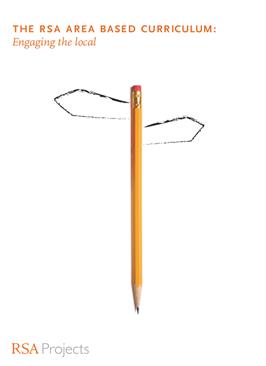This report outlines the idea of the area-based curriculum. It makes an argument for why using local areas as resources is essential in engaging all children with learning. The report goes on to provide some indicative principles for action.
Many schools still feel compelled to provide a generic curriculum. This not only fails to engage or enthuse young people, it also misses opportunities to draw on local resources to support young people’s learning.
National policy tends to treat schools and children as without context, unless their context is seen to be problematic. This construction of certain areas as problematic can be damaging and risks undermining efforts to reduce the impact of social class, ethnicity and neighbourhood on educational success.
We argue that every locality is as meaningful as the next and that every child should be given the opportunity to see their lived worlds recognised and valued by their curriculum — across or between the subjects or areas of learning outlined in the National Curriculum.
An area-based curriculum would draw on diverse stakeholders (including young people) in a local area to develop a curriculum through which all children can be critically engaged in the realities and richness of their local area. This model could empower pupils and parents as well as other local representatives from outside the school and draw on local resources to support the curriculum and school.
The report recommends a set of principles to guide and underpin the design and operation of any area-based curriculum. Especially important is the principle that there is no single, uniform model that can be applied across various areas. Any local area should develop and run its own curriculum designed to address the specific history, socio-economic context, needs and resources of the locality.
pdf 368.8 KB

Be the first to write a comment
Comments
Please login to post a comment or reply
Don't have an account? Click here to register.